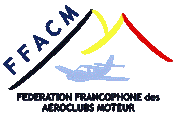The BURDI Advisory Board has been set up to provide experience through specialist knowledge and to contribute to the project by reviewing and commenting on project progress and deliverables.

The Hellenic U-Space Institute is a pioneering non-governmental organization targeted toward promoting advanced air mobility and integrating unmanned aerial vehicles in the Greek U-space. The Institute actively engages public bodies and industry professionals in the effort for regulatory standardization of Advanced Air Mobility regulations, through the facilitation of understanding of the newly emerging legislative environment, familiarizing citizens with the new technologies, fostering positive relationships between UAS operations, service providers, regulatory bodies, and the public. The goal of HUSI is the development of procedures and operations for drones at an urban scale. More specifically, HUSI aims through memberships and partnerships to facilitate the creation of a UAM ecosystem that will turn the dream of UAM into reality by enhancing drone path analysis, battery consumption minimization, and urban air traffic. Our team of experts includes electrical and mechanical engineers with extended experience in aviation operations and UAS technology, aviation specialists, law specialists and software developers.

Agoria is a non-profit organisation that represents and supports the technology industry in Belgium. It offers services, events, research and advocacy on topics of technological innovation. Agoria connects over 1900 technologically inspired companies active in Belgium (2019) that strive for progress based on the development or application of innovations.

The Public Service Mobility and Transport is a Federal Public Service of Belgium. It was created by Royal Order on 20 November 2001, as part of the plans of the Verhofstadt I Government to modernise the federal administration. It is responsible for preparing and implementing transportation policies. The agency’s Air Accident Investigation Unit (AAIU) investigates aircraft accidents and incidents.

The Ministry of Infrastructure and Water Management is committed to improving quality of life, access and mobility in a clean, safe and sustainable environment. The Ministry strives to create an efficient network of roads, railways, waterways and airways, effective water management to protect against flooding, and improved air and water quality.

Organized in 1898, ASTM International is one of the world’s largest international standards developing organizations. ASTM standards enhance performance and confidence – from the advanced manufacturing technology to the aircraft overhead. By understanding commercial needs and consumer priorities we help our world work better. ASTM is driven by the expertise and commitment of its 30,000 members, who hail from more than 150 countries. They use good science, good engineering and good judgment to improve performance in manufacturing and materials, products and processes, systems and services. Businesses, governments and individuals collaborate openly and transparently in our technical committees, ensuring our standards combine market relevance with the highest technical quality. ASTM standards are used and accepted worldwide and cover areas such as metals, paints, plastics, textiles, petroleum, construction, energy, the environment, consumer products, medical services, devices and electronics, advanced materials, emerging aviation technologies and more.

VIVES University of Applied Sciences educates students at bachelor level (EQF level 6), life-long learning courses and engages in hands-on research by reaching out to companies and organizations that face modern day challenges. The VIVES Aeronautics research originated from manned aviation training and applied research experience in airline pilot and aircraft maintenance. This resulted in 2 research domains: drones and MRO (Maintenance Repair & Overhaul). VIVES DroneLab is the UAS research group and is a key institution for development of sustainable drone applications. DroneLab supports and develops the booming drone industry by providing education, tailor made trainings, consultancy and participates in research projects.

VVMV vzw has set itself following goals: Being an umbrella organization for all Flemish Flying Clubs. Be a discussion partner for all aviation authorities involved. VVMV vzw represents the flying clubs in various Flemish and National organizations, but also works with them to develop solutions to problems that every flying club faces. Defending the interests of general aviation and its members. Support to flying clubs and authorities regarding aviation files. Support to the flying clubs for their flight training and public relations events. Expansion of the Flemish presence in all aviation activities. Specific support for individual pilots, such as sports insurance or organization of various events

FFACM asbl has set itself the following goals: Promote the creation and development of its members’ aerial activities. Promote contacts between flying clubs and their pilots, in particular through the organization of joint activities. Coordinate, represent and defend the legitimate interests of any owner or user of engine-powered aircraft, helicopter, autogyro, etc. Distribute judiciously and equitably among its members the subsidies or aid that it may receive.

The FBA (Fédération Belge d’ Aviation) / BFL ( Belgische Federatie voor Luchtvaart) / Belgian Aviation Federation is the umbrella for both the VVMV and FFACM at Belgian Federal Level.
